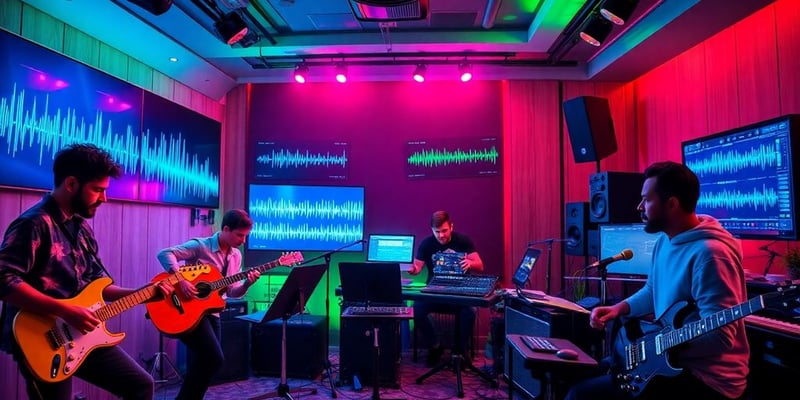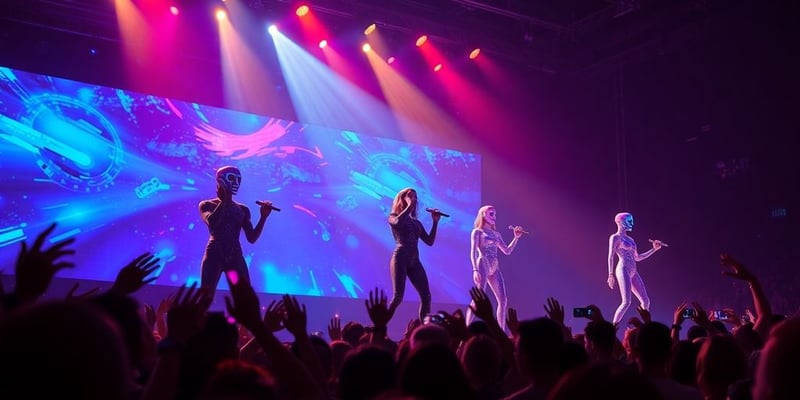
The Rise of AI Generated Singers: How Technology is Shaping the Future of Music in 2025
Save 15%

AI-generated singers are changing the music scene in ways we couldn't have imagined. Imagine a world where your favorite songs are sung by virtual voices that sound just like real people. It's happening, and it's shaking up the music industry big time. From creating new genres to transforming live performances, AI singers are here to stay. As we look ahead to 2025, it's clear that technology is not just a tool but a game-changer in how music is made and enjoyed.
Key Takeaways
- AI singers are transforming music by mimicking human voices, making them almost indistinguishable from real singers.
- These virtual vocalists can perform in multiple languages and genres, offering unprecedented versatility.
- AI is not just a tool but a creative partner, helping artists explore new musical landscapes and genres.
- The technology behind AI singers involves machine learning and neural networks, enhancing their ability to replicate human vocals.
- AI singers are impacting the global music industry, influencing trends, and changing how music is produced and consumed.
Understanding AI Vocal Technology
How AI Mimics Human Voices
AI vocal technology isn't just a new gadget—it's changing how we think about music. These systems can mimic human voices, creating sounds that are almost indistinguishable from real singers. They use algorithms to learn and replicate vocal patterns, making them quite versatile. What's wild is how these AI vocalists can sing in different languages and styles, adapting to whatever the music demands. It's like having a multilingual, multi-genre singer available at the click of a button.
The Versatility of AI Singers
AI is really shaking things up in the music world. Traditional vocal performances are getting a tech makeover. With AI, producers can tweak and perfect vocals in ways that weren't possible before. Imagine a singer hitting every note perfectly, every single time. That's what AI brings to the table. Plus, AI can experiment with vocal effects that human singers might struggle with, adding layers and depth to performances.
- Seamless pitch correction
- Infinite vocal range possibilities
- Unique vocal effects and harmonies
Multilingual and Multi-Genre Capabilities
AI isn't just a tool—it's a partner in creativity. Musicians and producers are using AI to push boundaries and explore new musical landscapes. It's like having a collaborator who's always ready to try something new. AI's expected role is to unite artists on shared technological platforms, fostering cross-pollination that could lead to the emergence of new genres and innovative musical hybrids.
AI vocalists are not just about replacing human voices; they're about expanding the horizons of what's possible in music. They offer a new palette of sounds and possibilities, helping artists to dream bigger and bolder.
The Role of AI in Music Innovation
AI as a Creative Partner
AI is shaking things up in music creation. It's not just a tool anymore; it's like having a new band member. Musicians are using AI to explore sounds they couldn't even imagine before. It's like having a buddy who always has fresh ideas. AI's creativity is boundless, and it's helping musicians push the boundaries of what's possible.
Emergence of New Genres
With AI, we're seeing the birth of entirely new genres. Imagine blending classical music with modern electronic beats or creating a fusion of jazz and hip-hop. AI can mix and match styles in ways humans might not think of. This leads to music that feels both familiar and completely new, opening up a world of possibilities for artists and listeners alike.
Cross-Pollination in Music
AI is also a bridge between different musical cultures. It's breaking down barriers and allowing artists from different backgrounds to collaborate effortlessly. You can have a traditional African rhythm combined with a European classical melody, all thanks to AI's ability to understand and merge diverse musical elements. This cross-pollination is enriching the global music scene, making it more vibrant and inclusive.
In a world where AI is becoming a key player in music, it's essential to remember that it's not about replacing human creativity but enhancing it. AI offers new tools and perspectives, but the heart of music still beats with human emotion and imagination.
As the music industry navigates this transformative era, AI is set to either enhance its value or challenge its core elements. But one thing's for sure, it's an exciting time to be part of this musical journey.
AI-Driven Creativity in Songwriting

Collaborating with AI in Songwriting
AI is stepping into the songwriting scene as a creative partner, not a replacement. Imagine having a tool that can suggest lyrics, melodies, and even harmonies in real-time. It's like having a co-writer who's always ready to brainstorm. These platforms can analyze current trends and propose ideas that match what's hot in music right now. You can even input a theme or mood, and the AI will draft a song around it. It's not just a tool; it's a creative buddy that helps artists stay fresh and relevant.
Maintaining Human Creativity
While AI offers a lot, keeping the human touch in music is still key. People worry that AI might make everything sound the same, but it's really about how you use it. Artists can blend AI suggestions with their own ideas to create something truly unique. It's like having another instrument in your toolkit. The trick is to use AI to enhance, not overshadow, your own creative spark.
Addressing Industry Concerns
As AI becomes more involved in songwriting, there are some big questions to tackle. Who owns a song that an AI helped write? Is it the artist, the programmer, or the AI itself? These are tricky issues that the industry is still working out. Plus, there's the worry that AI might "borrow" from existing songs without permission, which could lead to legal headaches. It's a new world, and everyone's figuring out how to navigate it.
AI in music isn't about replacing humans; it's about expanding what's possible. As artists learn to work with AI, they're finding new ways to express themselves and connect with audiences. It's not without challenges, but the potential for innovation is huge.
For more on how AI is transforming music creation, check out this AI technology that helps artists overcome creative blocks and enhance their songwriting process.
The Technology Behind AI Vocalists
Machine Learning in Vocal Synthesis
Machine learning is the heart of AI vocalists. These systems learn by analyzing vast amounts of data, picking up on the nuances of human voices. It's like teaching a computer to sing by letting it listen to countless hours of recorded speech and song. This tech doesn't just focus on getting the notes right; it captures the emotion and style that make a voice unique. With machine learning, AI can produce vocals that sound incredibly human.
Neural Networks and AI Vocals
Think of neural networks as the brain behind AI vocalists. They process information in layers, refining the output with each step. This technology allows AI to adapt and improve, becoming more adept at mimicking human vocal traits. Neural networks handle complex tasks like pitch modulation and dynamic expression, making AI vocals sound more realistic and engaging.
Advancements in AI Audio Processing
AI audio processing has evolved significantly. Nowadays, AI can streamline the music production process by aligning vocals, tuning recorded takes, and even recreating the sound of famous singers. This progress enables musicians and producers to experiment with new sounds and techniques without the constraints of traditional vocal recording. AI vocal generators utilize voice databases to create vocals tailored to specific genres or styles, leveraging advanced AI voice models. AI audio tools are continually updated, offering more precision and creativity in the studio.
As AI continues to weave its way into the fabric of music, we're seeing a shift not just in how songs are produced, but in who gets to create them. With AI vocalists, the barriers to entry are lower than ever, allowing a more diverse range of voices to be heard. It's an exciting time for music lovers and creators alike.
The Global Impact of AI Vocalists on the Music Industry
AI Vocalists in Different Cultural Contexts
AI vocalists are popping up everywhere, and it's pretty cool to see how they're being embraced in various cultures. Take Japan, for instance. They've been into virtual idols like Hatsune Miku for ages, and AI vocalists are just the next step in that journey. Over in the West, though, folks are using AI to bring back the voices of legendary artists, letting fans enjoy "new" tracks from their old favorites. This mix of tech and culture is crafting a musical scene that’s unlike anything we've seen before.
Economic Implications for the Music Industry
Let's talk dollars and cents. AI vocalists are shaking up the economics of making music. With AI, the cost of producing a track can drop big time since you don't have to pay a human singer. This means more people can jump into music creation, leading to a boom in new artists and fresh sounds. But, on the flip side, it might mean fewer gigs for traditional singers. It's a bit of a double-edged sword, and the industry will have to figure out how to roll with it.
AI's Role in Global Music Trends
AI isn't just changing how tunes are made; it's also influencing what's hot in music. Algorithms can check out trends and guess what listeners want next, potentially shaping the global music scene. This could lead to a more uniform sound worldwide, or it might help niche genres find their fans. It's a bit unpredictable, but one thing’s for sure: AI is here to stay in the music world.
As AI continues to weave its way into the fabric of music, we're seeing a shift not just in how songs are produced, but in who gets to create them. With AI vocalists, the barriers to entry are lower than ever, allowing a more diverse range of voices to be heard. It's an exciting time for music lovers and creators alike.
In fact, the music industry is projected to see a 17.2% revenue increase by 2025, largely due to the growth of AI-generated music, with the global AI in the music market valued at $2.9 billion.
AI Vocalists and the Evolution of Live Performances

AI vocals are shaking up live performances, turning concerts into high-tech spectacles. No longer just about the band on stage, these events now feature a blend of digital and human sounds. AI vocalists can perform alongside real singers, creating a mix that was once impossible to achieve live. Some artists even use AI to "sing" parts of their songs during shows, adding a futuristic twist that captivates audiences.
AI isn't just changing the sound; it's transforming the whole concert vibe. Imagine a show where the music shifts with the crowd's mood or AI-generated visuals sync with the beat. This kind of interactivity makes concerts more engaging and memorable. Plus, AI can tailor experiences for fans, making each event feel special.
Looking ahead, AI vocalists are set to become a staple in live music, offering artists new ways to experiment. But there's a flip side: what happens to human singers? As AI takes on more roles, the industry must balance tech with talent. Still, AI vocalists are here to stay, ready to redefine what "live" really means.
Wrapping It Up
So, here we are, looking at a future where AI vocalists might just be the next big thing in music. It's kind of wild to think about how far we've come, right? From the days of vinyl records to now having virtual singers that can belt out tunes just like your favorite artist. Sure, there are some bumps in the road, like figuring out how to keep the human touch in music, but that's part of the journey. As we move towards 2025, it's clear that AI is going to play a big role in how music is made and enjoyed. Whether you're a musician or just someone who loves a good beat, it's an exciting time to be part of the music world. Who knows what amazing sounds we'll be jamming to in the next few years?
Frequently Asked Questions
What are AI singers?
AI singers are computer programs that can sing like humans. They use special technology to create voices that sound real.
How do AI singers change music making?
AI singers make it easier and cheaper to produce music. They help songwriters with new ideas and let producers create songs without needing human singers.
Can AI singers perform at concerts?
Yes, AI singers can be part of live shows. They can sing with real performers or even perform alone using special tech.
Are there any problems with using AI singers?
Some problems include copyright issues and making sure the music feels real. People also worry about how much control humans have over the music.
Do AI singers work in all music styles?
AI singers can sing in many styles and languages, making them very flexible for different types of music.
What is the future of AI singers in music?
AI singers are likely to become more common in music. They offer new ways to create and enjoy music, but the industry needs to balance using AI and supporting human artists.









